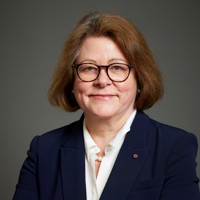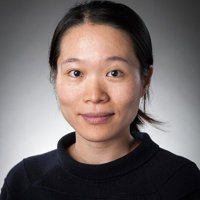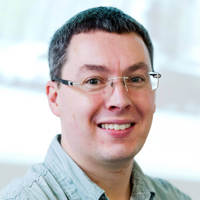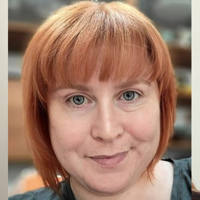This event is hybrid and in-person attendance is by invitation only. All talks will be streamed online and available to all.
The Research Forum is a highlight of the Academy’s research activities, showcasing the world-class engineering research funded through the Academy’s wide range of programmes.
Attendees will have an opportunity to listen to talks and view exhibits, demonstrations and posters from current awardees and alumni. From robots that can detect nuclear waste to electrochemical devices for a zero carbon economy our awardees are at pushing the boundaries of engineering and finding solutions to the biggest challenges the world faces today.
This year’s keynote speaker, Baroness Brown of Cambridge DBE FREng FRS, is the Academy’s first Senior Research Fellow.
For more information, please contact Marianne Jaskiewicz, Research Programmes at the Royal Academy of Engineering.
Programme*
|
Time |
Session |
|
1.15pm - 1.45pm |
Registration |
|
1.15pm |
Exhibition opens and Lunch |
|
1.50pm -2.10pm |
Levitation Demonstration |
|
2.30pm |
Welcome and introduction Professor Sir Jim McDonald FREng FRSE, President, Royal Academy of Engineering |
|
2.40pm |
Overview of the Academy’s research programmes Professor Alicia El Haj FREng, Deputy Chair of Research Committee |
|
2.45pm |
Keynote presentation The Baroness Brown of Cambridge DBE FREng FRS |
|
3.05pm |
Awardee presentations Sustainable next generation combustion systems for aero gas turbines Dr Cat Gardner, Rolls-Royce & Loughborough University Intelligent medical device innovation Professor Alejandro Frangi, University of Leeds Fully superconducting machine for zero emission aviation Professor Min Zhang, University of Strathclyde Materials engineering approaches to realise net zero energy solutions Professor Stephen Skinner, Imperial College London |
|
3.45pm |
Colin Campbell Mitchell award announcement Professor Bashir M. Al-Hashimi CBE FREng, Chair, Awards Committee |
|
3.55pm |
Closing remarks Professor Alicia El Haj FREng, Deputy Chair of Research Committee |
|
4.00pm |
Refreshment break |
|
4.00pm – 5.30pm |
Exhibition reopens |
|
4.30pm – 5.00pm |
Levitation demonstration |
4.30pm – 5.00pm |
Lightning talks 4.30pm – Dr Amy Gandhi, University of Sheffield 4.45pm – Dr Raziyeh Farmani, University of Exeter 5.00pm – Professor Tom Scott, University of Bristol |
|
5.30pm |
Event close |
* Programme may be subject to change.
Venue and accessibility
It is very important to the Royal Academy of Engineering that our events are accessible to all. If you have any accessibility requirements, please contact the Events team more than one week in advance of this event so that necessary arrangements can be made. Contact details: [email protected]

The Baroness Brown of Cambridge DBE FREng FRS FMedSci

Professor Alex Frangi FREng

Dr Min Zhang

Professor Stephen Skinner

